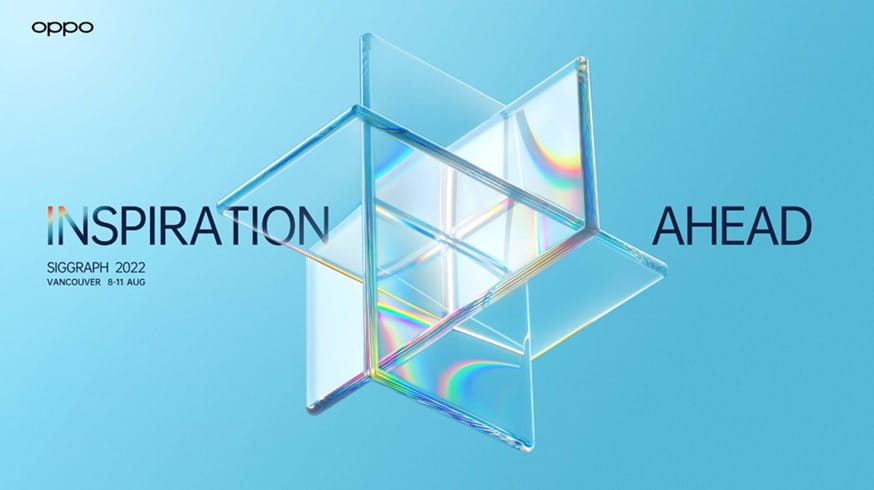Global technology brand OPPO today announced its participation in SIGGRAPH 2022. During the conference, OPPO will showcase its latest industry-leading innovations in ray tracing, heterogeneous computing, AR, and digital humans, offering visitors hands-on experiences with these technologies.

OPPO Ray Tracing
OPPO first unveiled its plans for ray tracing technology at ODC 2021. During SIGGRAPH 2022, OPPO will announce the launch of new open-source ray tracing technology in its Physray Engine 1.0, enabling a new generation of visual experiences with global partners. Meanwhile, the world’s first mobile, real-time ray tracing system application created by OPPO, the ColorOS Ray Tracing 3D Wallpaper, will receive an upgrade that OPPO users can download through the OPPO App Store. Users can experience the physics engine-powered wallpapers co-developed by OPPO and Tai Chi for the amazing effects.
OPPO will also demonstrate its latest technical progress in ray tracing with the Physray Engine 2.0. The new engine integrates more advanced ray tracing capabilities, including OPPO-exclusive ray tracing effects, a global rendering pipeline, and full path tracing. These new capabilities will also be available to all developers soon. At the show, OPPO will also showcase War Zone, a large action game scene based on the Physray Engine 2.0, and an animation demonstrating full path tracing capabilities on mobile.
OPPO Heterogeneous Computing System
OPPO has long been investing in heterogeneous computing technology to explore heterogeneous software applications using different processing cores. OPPO’s heterogeneous computing technology is designed for performance and power optimization, helping developers solve application performance problems and develop programs that run faster and more efficiently.
At SIGGRAPH 2022, OPPO will showcase the latest gaming demos that run on its heterogeneous computing system. It migrates all 2D rendering from the GPU to the DSP, reducing power consumption while optimizing system load. In terms of high-performance computing, OPPO will also introduce its self-developed lightweight and efficient inference framework and demonstrate a video format conversion tool based on the technology.
OPPO Digital Human
The OPPO Digital Human is OPPO’s self-developed hyper-realistic digital human technology. The technology provides a realistic and unique interactive experience thanks to its lifelike appearance and personality built on AI capabilities such as semantic recognition, feature recognition, voice synthesis, lip syncing, and dynamic expressions.
The OPPO Digital Human has been designed to continually improve its intelligence through ongoing AI training, allowing it to one day undertake roles currently only performed by humans, such as customer service roles.
OPPO AR Glass 2021
First introduced at OPPO INNO Day 2020, OPPO AR Glass 2021 is the company’s second AR glasses concept product. It features a split design, nearly 75 percent lighter than its predecessor, making it more comfortable to wear for extended periods. It incorporates a unique Birdbath optical solution, which increases contrast by 53 percent, brightness uniformity by 98 percent, and pixels per degree by 40 percent compared with its predecessor, delivering sharper and more refined images.
OPPO AR Glass 2021 offers the industry’s first end-to-end AR language translation feature powered by a range of patented computer vision technologies, supporting translations between languages including Chinese, English, Japanese, and Korean.
“The quality of mobile graphics rendering is on the verge of taking off,” said Dr. Hongyu Sun, Head of the OPPO Seattle Engineering Team. “The new generation of mobile hardware and various advanced rendering technologies will bring unprecedented fidelity for mobile graphics in the next few years. OPPO is investing heavily in this territory, and we would like to share our latest progress with SIGGRAPH audiences this year. I hope you will enjoy the ray tracing, heterogeneous computing platform, path tracing, AR glass, and physical rendering demos we prepared for SIGGRAPH.”
